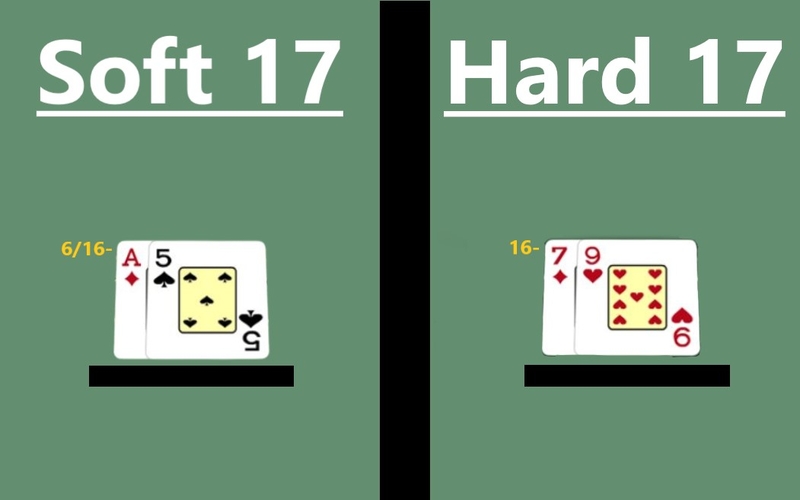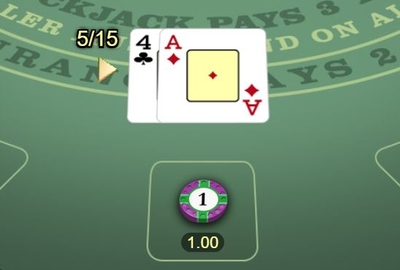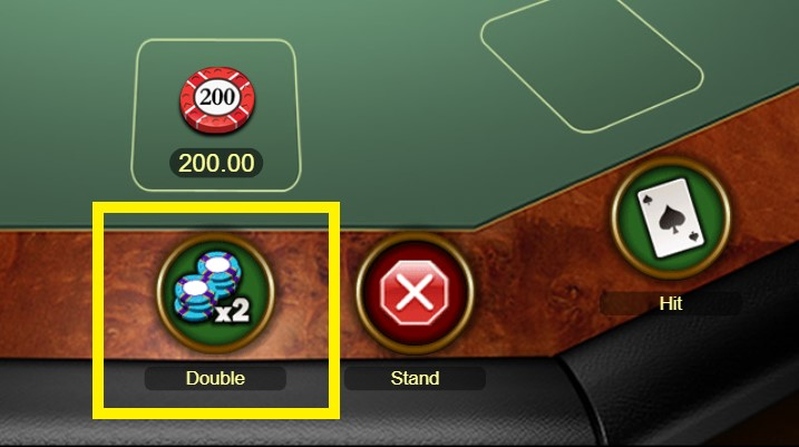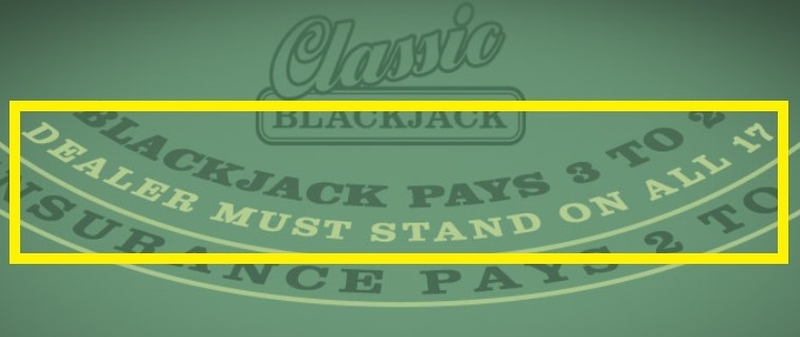
Learning the difference between soft and hard hands is really where the blackjack ‘beginner’ starts to become more of an intermediary player, with additional knowledge improving their technique.
People who have only been playing a short while will understand the basic concept of the game and probably have an idea of when it is best to hit and stand by looking at their cards vs the dealer’s.
However, they might not be so far along that they know how to behave when they have a soft 17 vs a hard 17, for instance.
In fact, some newer players might not even know what the two terms mean.
They are both worth 17 so we do the same thing in both situations, right?
Wrong.
It all boils down to the Ace, which can hold a value of 1 or 11 depending on the situation. This is where soft and hard hands come from.
What Do Soft & Hard Mean in Blackjack?
 The meaning is actually incredibly simple; a soft hand is one that contains an Ace, a hard hand is one that does not, or one that contains an Ace that must be used as a 1 to avoid the hand busting.
The meaning is actually incredibly simple; a soft hand is one that contains an Ace, a hard hand is one that does not, or one that contains an Ace that must be used as a 1 to avoid the hand busting.
It is known as a soft hand because an Ace can act either as a 1 value card or an 11 value card, so it gives the player more options.
For instance, a hand made up of an Ace and a 7 could either be an 8 total or an 18 total.
If the dealer was showing a 9 as their up card you would want to hit in this scenario, and could do so safe in the knowledge that you can’t go bust, because even if you got a 10 on your next card it would only bring the total back to 18 again.
Had your hand been a hard 18, so let’s say a 10 and an 8, hitting would have been a bad idea, because your hand total is fixed and you would be far more likely to be dealt a card that makes you go bust than one that improved your hand.
It would be an unnecessary risk.
Sometimes a hand is also referred to as soft if it can hit and not go bust, regardless of whether there is an Ace or not; so you might find a hand of 4 and 5 (9 total) being referred to as soft in some cases.
However, most people simply use the inclusion of an Ace as the deciding factor here, so don’t let it confuse you.
Can a Soft Hand Become a Hard Hand?
Yes, a soft hand can become a hard hand.
This happens when an Ace that could previously have been used as a 1 or an 11 is forced into being used as a 1 after a hit.
For example, if the player had been dealt an Ace and a 5 then their hand could be worth 6 or a 15; but if they hit and got a 4 (new total of 10 or 19, so still soft) then hit again and got a 10, the hand would become hard because using the Ace as an 11 is no longer possible, it would bust the hand. The only option at this point is to use the Ace as a 1, with the 4, 5 and 10 making a total hand of 20.
Another way to think of it is that a hard hand is not adaptable but a soft hand is, one has some flexibility and the other has none.
Soft Hands and Doubling

Playing soft hands correctly is key to maximising your winnings in a game of blackjack, as well as following basic strategy on hard hands too of course.
Knowing when to double when in an advantageous position allows the player to take twice as much from the dealer on a single successful hand, and there are quite a few occasions with soft hands where this is appropriate.
Where 4-8 decks are in play (which is most common), the following is a good approach:
- Soft 13 – Double if dealer’s up card is 5 or 6.
- Soft 14 – Double if dealer’s up card is 5 or 6.
- Soft 15 – Double if dealer’s up card is 4, 5 or 6.
- Soft 16 – Double if dealer’s up card is 4, 5 or 6.
- Soft 17 – Double if dealer’s up card is 3, 4, 5 or 6.
- Soft 18 – Double if dealer’s up card is 3, 4, 5 or 6.
The above assumes the dealer stands on all 17s, but not much changes in terms of strategy if the dealer hits on soft 17s – just play your soft 14s the same way as soft 15s or 16s, and play soft 18s as above with the addition of a 2 as the dealer’s up card.
The reason we want to do this is because the probability of the dealer going bust from these hands is high, and the probability of us improving or matching our hands is good, but by doubling we get a higher payout when it works out in our favour.
It won’t always work out that way, but statistically we will win the day more often than we lose in these scenarios, and the wins will far outweigh the losses.
Dealer Rules on Soft 17

As we brushed over above, another aspect of the game that is impacted heavily by soft hands is what the dealer does with a soft 17.
This rule will be printed on the table wherever you play blackjack because it is so important. The dealer will either hit on soft 17 or stand on soft 17.
It used to be the case that dealers would stand on all 17s regardless of whether they were hard or soft, but the casinos in Atlantic City popularised the concept of dealer’s hitting on soft 17s because they knew it would improve the house edge 0.22%.
It might not sound like much, but we are playing with tiny margins in blackjack, where the house only has around 0.5% of an edge anyway assuming there are no funny rules and that the player uses basic strategy, so this has a big impact.
In the same way that a soft hand allows you to try and improve your hand with no risk, so it does for the dealer.
Therefore, if you have the choice, always choose a table or a game online where the dealer must stand on soft 17s.
